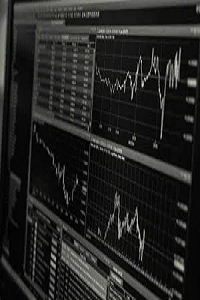Algorithm Software for Trading: Enhancing Your Investment Strategy

In today's fast-paced financial markets, staying ahead of the curve is essential for successful trading. One way traders achieve this is through algorithmic trading, leveraging sophisticated software to execute trades with speed, accuracy, and efficiency. In this article, we'll delve into the world of algorithm software for trading, exploring its intricacies, benefits, challenges, and future prospects.
Introduction to Algorithm Software for Trading
Algorithmic trading, also known as algo trading or black-box trading, involves the use of computer algorithms to automate trading decisions. These algorithms analyze vast amounts of data, identify patterns, and execute trades at optimal prices and times. Algorithm software plays a pivotal role in facilitating this process, providing traders with powerful tools to navigate the complexities of financial markets.
Understanding Algorithmic Trading
What is Algorithmic Trading?
Algorithmic trading refers to the use of pre-defined instructions or algorithms to execute trades automatically. These algorithms are based on various parameters, including price, volume, time, and mathematical models. By automating trading decisions, algorithmic trading seeks to capitalize on market inefficiencies and generate profits with minimal human intervention.
How Does Algorithmic Trading Work?
Algorithmic trading works by breaking down trading strategies into logical rules that can be implemented by computer programs. These programs analyze market data in real-time, identify trading opportunities, and execute trades according to the defined algorithms. By reacting swiftly to market conditions, algorithmic trading aims to maximize returns and minimize risks.
Importance of Algorithm Software in Trading
Algorithm software plays a crucial role in the success of algorithmic trading strategies. Here are some reasons why algorithm software is essential for traders:
Efficiency and Speed
Algorithm software enables traders to execute trades with lightning-fast speed, taking advantage of fleeting market opportunities. By automating the trading process, algorithm software ensures timely execution and minimizes the impact of market fluctuations on trade outcomes.
Removing Human Emotion
Human emotions such as fear and greed can cloud judgment and lead to irrational trading decisions. Algorithm software eliminates emotional bias by following predefined rules consistently. This discipline helps traders stick to their strategies and avoid impulsive actions driven by emotions.
Backtesting and Optimization
Algorithm software allows traders to backtest their strategies using historical data, simulating how they would have performed in past market conditions. This feature enables traders to fine-tune their algorithms, optimize parameters, and improve the robustness of their trading strategies.
Key Features of Algorithm Software
Algorithm software offers a wide range of features to meet the diverse needs of traders. Some key features include:
Real-time Data Analysis
Algorithm software provides access to real-time market data, enabling traders to make informed decisions based on up-to-date information. By analyzing market trends and patterns in real-time, traders can identify profitable trading opportunities and act swiftly.
Customizable Strategies
Algorithm software allows traders to create custom trading strategies tailored to their specific objectives and risk tolerance. Whether it's trend-following, mean reversion, or high-frequency trading strategies, algorithm software provides the flexibility to implement diverse trading approaches.
Risk Management Tools
Algorithm software incorporates risk management tools to help traders mitigate potential losses and preserve capital. These tools may include stop-loss orders, position sizing algorithms, and portfolio diversification techniques to manage risk effectively.
Types of Algorithm Software
There are various types of algorithm software designed to cater to different trading styles and preferences. Some common types include:
Trend-following Algorithms
Trend-following algorithms identify and capitalize on market trends by entering positions in the direction of the prevailing trend. These algorithms aim to ride the momentum of the market and profit from sustained price movements.
Mean Reversion Strategies
Mean reversion strategies exploit the tendency of asset prices to revert to their mean or average value over time. These algorithms identify overbought or oversold conditions in the market and initiate trades with the expectation that prices will eventually return to their equilibrium level.
High-Frequency Trading Algorithms
High-frequency trading algorithms execute a large number of trades within milliseconds, capitalizing on small price discrepancies across different markets. These algorithms rely on advanced technology and low-latency trading infrastructure to gain a competitive edge in the market.
Choosing the Right Algorithm Software
When selecting algorithm software for trading, traders should consider several factors to ensure they choose the right solution for their needs:
Scalability
Algorithm software should be scalable to accommodate growing trading volumes and expanding strategies. Whether trading as an individual or a large institution, scalability is essential to meet evolving business requirements.
User-Friendly Interface
A user-friendly interface is crucial for traders to navigate the software efficiently and execute trades seamlessly. Intuitive design, customizable dashboards, and interactive charts enhance the user experience and facilitate informed decision-making.
Integration with Trading Platforms
Algorithm software should integrate seamlessly with popular trading platforms and brokerage services. Compatibility with APIs (Application Programming Interfaces) enables smooth data exchange and order execution, enhancing efficiency and productivity.
Benefits of Using Algorithm Software for Trading
The adoption of algorithm software offers several benefits to traders, including:
Increased Accuracy
Algorithm software can analyze vast amounts of data with precision and accuracy, leading to more informed trading decisions. By leveraging quantitative analysis and statistical models, traders can identify profitable opportunities and minimize errors.
Reduced Transaction Costs
Algorithmic trading can significantly reduce transaction costs compared to manual trading methods. By executing trades at optimal prices and minimizing slippage, traders can save on brokerage fees and improve overall profitability.
Diversification of Strategies
Algorithm software allows traders to diversify their trading strategies across different asset classes and markets. By spreading risk across multiple strategies, traders can enhance portfolio resilience and adapt to changing market conditions.
Challenges and Risks Associated with Algorithmic Trading
While algorithmic trading offers many benefits, it also poses certain challenges and risks that traders should be aware of:
Technical Issues
Algorithmic trading systems are vulnerable to technical glitches, software bugs, and connectivity issues. A malfunctioning algorithm or infrastructure failure can result in erroneous trades and financial losses.
Understanding the Criteria for Evaluating Forex Brokers:
Before delving into our list of the best brokers of forex, it's essential to understand the criteria used for evaluation. These factors serve as pillars of excellence in the forex industry:
Regulatory Compliance: Trust is paramount in forex trading. The best brokers are regulated by reputable authorities such as the Financial Conduct Authority, the Cyprus Securities and Exchange Commission, and the Australian Securities and Investments Commission, ensuring adherence to stringent standards and providing clients with a sense of security.
Trading Platforms: The efficiency and reliability of trading platforms significantly influence the trading experience. Top brokers offer intuitive and feature-rich platforms like MetaTrader 4 (MT4) and MetaTrader 5 , facilitating seamless execution, advanced charting tools, and access to a diverse range of assets.
Cost and Fees: Transparent fee structures are crucial for traders seeking to maximize profitability. The best brokers offer competitive spreads, low commissions, and minimal deposit requirements, allowing traders to optimize their cost-efficiency without compromising on quality.
Asset Diversity: A diverse range of tradable instruments enables traders to capitalize on various market opportunities. Leading brokers offer access to major, minor, and exotic currency pairs, as well as commodities, indices, and cryptocurrencies, empowering traders to build diversified portfolios tailored to their investment objectives.
Customer Support: Responsive and knowledgeable customer support is indispensable in the fast-paced world of forex trading. The best brokers prioritize customer satisfaction, offering multilingual support channels, 24/7 availability, and comprehensive educational resources to assist traders at every stage of their journey.
Exploring the Best Brokers of Forex:
XYZ Broker: Renowned for its robust regulatory framework and cutting-edge trading technology, XYZ Broker stands out as a top choice for discerning traders. With lightning-fast execution, competitive spreads, and a wide range of assets, XYZ Broker caters to both novice and seasoned traders seeking unparalleled reliability and performance.
ABC Forex: Trusted by traders worldwide, ABC Forex combines industry expertise with a client-centric approach to deliver exceptional trading services. Offering a user-friendly platform, low fees, and personalized customer support, ABC Forex empowers traders to navigate the forex markets with confidence and precision.
DEF Investments: Committed to excellence and innovation, DEF Investments sets the standard for excellence in forex brokerage. With state-of-the-art trading tools, tight spreads, and unparalleled liquidity, DEF Investments offers a premium trading experience tailored to the needs of modern traders.
GHI Capital: Recognized for its commitment to integrity and transparency, GHI Capital has earned a reputation as a trusted partner for forex traders worldwide. With regulatory oversight from leading authorities and a client-first approach, GHI Capital provides traders with peace of mind and a competitive edge in the markets.
Conclusion:
In the dynamic and competitive landscape of forex trading, selecting the best broker is paramount for success. By prioritizing factors such as regulatory compliance, trading platforms, cost-efficiency, asset diversity, and customer support, traders can identify brokers that align with their needs and objectives. Whether you're a novice trader embarking on your forex journey or a seasoned investor seeking to optimize your trading strategy, the best brokers of forex serve as invaluable partners in achieving your financial goals. Choose wisely, and embark on your journey to trading success with confidence and clarity.
Note: IndiBlogHub features both user-submitted and editorial content. We do not verify third-party contributions. Read our Disclaimer and Privacy Policyfor details.



